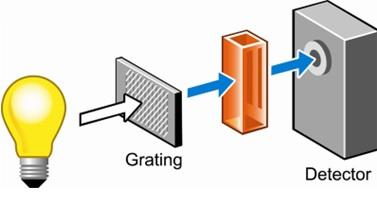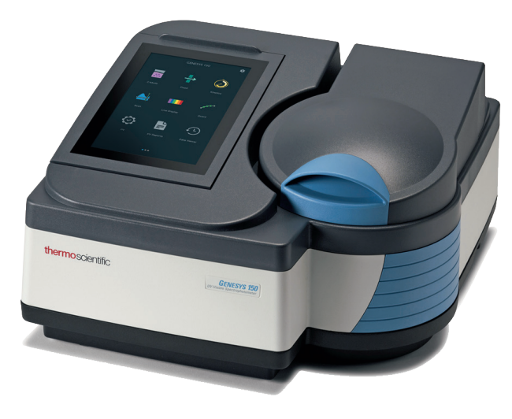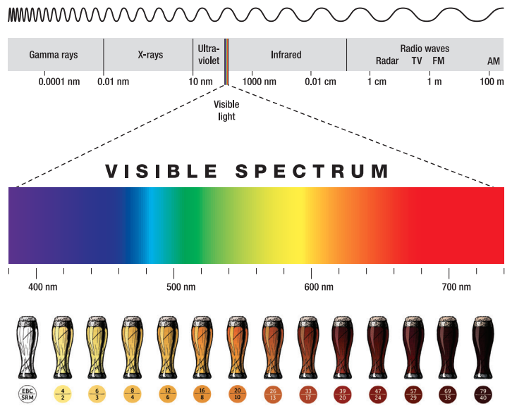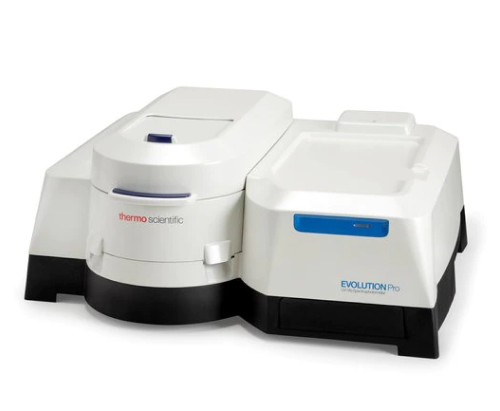What is UV-VIS spectrometry?
UV-VIS spectrophotometry is based on the principle that molecules absorb light at specific wavelengths, and this absorption is proportional to the concentration of the absorbing substance in the sample. The key equation governing this relationship is known as the Lambert-Beer Law, also referred to as Beer's Law or the Beer-Lambert Law. It describes the linear relationship between the absorption of light by a substance and its concentration in a solution.

The Beer-Lambert Law
The law is expressed mathematically as: A=ε⋅c⋅l
Where:
- A is the absorbance of the sample.
- ε (epsilon) is the molar absorptivity or molar extinction coefficient.
- c is the concentration of the absorbing species in the solution.
- l is the path length of the cuvette, i.e., the distance that light travels through the sample.
Genesys Series: Precision Redefined in Spectrophotometry
The Genesys series represents the pinnacle of spectrophotometric technology. Engineered for accuracy and ease of use, these spectrophotometers are equipped with advanced features, ensuring optimal performance across a spectrum of applications. The robust and compact UV-VIS/VIS spectrophotometers are ideal for quick and simple measurements and for high-throughput QC and QA testing.
Small footprint
low-stray-light optical system delivers exceptional linearity and reproducibility
Affordable price and low cost of ownership
Xenon flash lamp guaranteed for up to 3 years of maintenance-free use (GENESYS 50/150/180 models, BioMate 160 models)
Tungsten Halogen lamp (GENESYS 30/40/140 models)
Intuitive touch-screen software with full UV-Vis or Visible spectral range
Sample compartment accommodates a wide range of accessories


Expand your beer analysis with BeerCraft Software.
It’s valuable, affordable, and easy to implement.
For breweries, there is the BeerCraft Software with 20 pre-programmed ASBC methods that simplify beer quality determination. BeerCraft Software makes the selection of beer methods easy with the GENESYS UV-Vis Spectrophotometer’s large, high-resolution touchscreen and convenient method descriptions.
Evolution Series: Evolving Excellence in Spectral Analysis
The new generation of Evolution™ UV-Vis spectrophotometers is designed to meet the requirements of pharmaceutical, industrial QA/QC, chemical and academic laboratories.
Through the user-friendly Insight™ Pro software, it is possible to analyse your sample step by step. You can also save QA/QC procedures, making your measurements smoother. The Insight Pro Security Software helps you keep your laboratory compliant with 21 CFR Part 11, incorporating all the benefits of the Insight Pro software with added security to ensure the integrity of scientific data.
Fixed and variable bandwidth options
Xenon flash lamp guaranteed for up to 3 years of maintenance-free use
Extensive range of accessory options to meet a wide array of sampling requirements
Wide range of accessories to help measure any sample
Comply with current 2019 USP, EP, or JP requirements
Optional Insight Pro Security Software available to achieve 21 CFR part 11 compliance
Conclusion: Gain Precision and Reliability in Spectral Analysis with Thermo Scientific Spectrophotometers
Thermo Scientific's Genesys and Evolution series of spectrophotometers embody a legacy of excellence in spectral analysis. Whether you seek the robust performance of the Genesys series or the advanced capabilities of the Evolution series, Thermo Scientific ensures that your analytical needs are met with precision and reliability. Elevate your research and analytical processes with spectrophotometers designed to exceed expectations.









